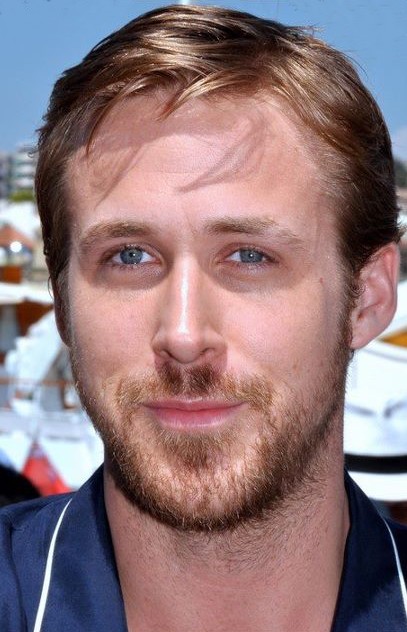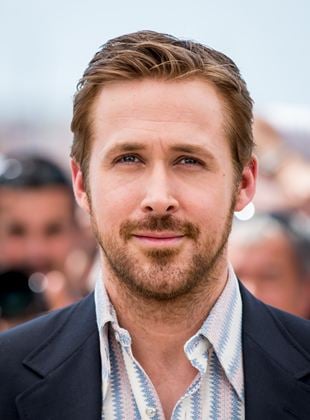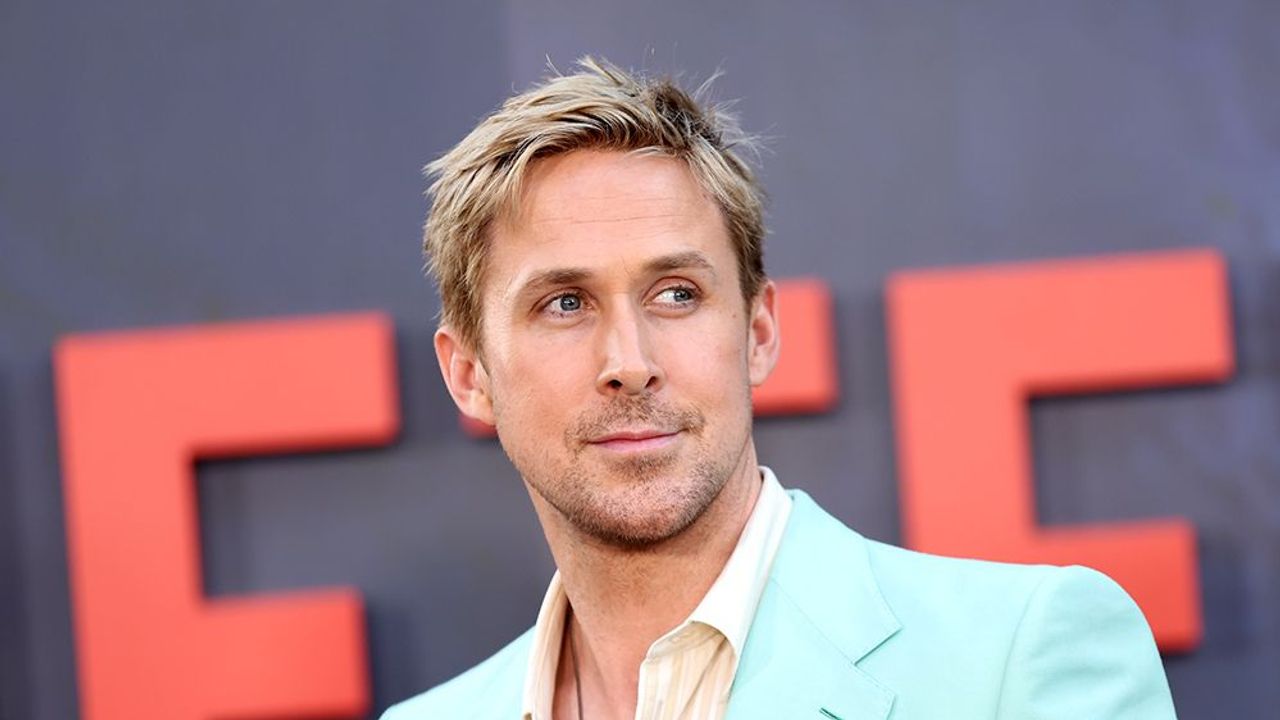Ryan Gosling (Part 2)
Ryan Gosling (Part 2)
In 2004, Ryan Gosling gained widespread recognition for his role as Noah Calhoun in the romantic drama film "The Notebook," opposite Rachel McAdams. Based on Nicholas Sparks' novel, the film was directed by Nick Cassavetes and depicted a love story spanning from 1940 to 1946. Gosling aimed to infuse his character with "quiet strength," drawing inspiration from Sam Shepard's performance in "Days of Heaven." Despite his acclaimed performance, Gosling and McAdams reportedly had a tumultuous relationship on set, with Gosling later admitting that they "inspired the worst in each other." Despite their off-screen conflicts, their on-screen chemistry was lauded by critics, with The New York Times praising their "spontaneous and combustible" performances. "The Notebook" was a commercial success, grossing over $115 million worldwide and earning Gosling several awards and nominations.
In 2005, Gosling appeared in the psychological thriller "Stay," portraying a disturbed young art student. While the film received mixed reviews, with critics expressing disappointment in the overall execution, Gosling's performance was noted as one of the film's strengths. He remained unfazed by the negative reception, embracing both positive and negative reactions from audiences.
The following year, Gosling delivered a mesmerizing performance in "Half Nelson," portraying a drug-addicted junior high school teacher who forms a bond with a young student. To prepare for the role, Gosling immersed himself in the character's world, spending time shadowing a real-life teacher in New York. Critics unanimously praised his performance, with Kenneth Turan of the Los Angeles Times hailing it as "mesmerizing" and Roger Ebert describing Gosling as "one of the finest actors working in contemporary movies." Gosling's portrayal earned him a nomination for the Academy Award for Best Actor, solidifying his reputation as a versatile and talented actor.
Throughout these pivotal roles, Gosling demonstrated his ability to inhabit complex characters with depth and authenticity, garnering critical acclaim and solidifying his status as one of Hollywood's most respected actors.

In the 2007 film "Lars and the Real Girl," Ryan Gosling portrayed an introverted man who develops a romantic relationship with a lifelike sex doll. Drawing inspiration from James Stewart's performance in "Harvey," Gosling delivered a nuanced portrayal that earned widespread acclaim. Roger Ebert praised Gosling's performance, stating that the film transformed "a life-sized love doll" into "a life-affirming statement of hope" largely due to Gosling's ability to convey profound emotions through his character. Ann Hornaday of The Washington Post lauded Gosling's performance as a "small miracle," noting his subtle transformation throughout the film. However, Manohla Dargis of The New York Times offered a dissenting opinion, describing Gosling's performance as a rare misstep in an otherwise brilliant career. Despite critical acclaim for Gosling's performance, "Lars and the Real Girl" struggled at the box office, failing to recoup its production budget.
In the same year, Gosling starred alongside Anthony Hopkins in the courtroom thriller "Fracture." Initially hesitant to accept the role, Gosling changed his mind after learning that Hopkins would co-star. He portrayed the character Willie, drawn to the role because of its flawed and realistic nature. Gosling immersed himself in preparation for the role, shadowing lawyers and observing courtroom proceedings. Critics praised the dynamic between Gosling and Hopkins, with Claudia Puig of USA Today highlighting their captivating performances. Despite mixed reviews for the film overall, "Fracture" proved to be a commercial success, grossing over $91 million worldwide.
However, Gosling's involvement in the 2007 film "The Lovely Bones" was marked by creative differences and ultimately led to his departure from the production. Initially cast as the father of the murdered teenage girl, Gosling underwent physical transformations to prepare for the role. However, disagreements emerged during preproduction, and Gosling ultimately realized that he was not the right fit for the role. Reflecting on the experience, Gosling acknowledged the importance of not letting ego interfere and admitted that it was a valuable lesson in his career.
In 2010, Ryan Gosling starred in several films after a three-year hiatus from the screen. His return was marked by a newfound enthusiasm for filmmaking, with Gosling expressing greater excitement and energy for his projects. He mentioned feeling depressed when not working, highlighting his deep passion for acting.
In Derek Cianfrance's directorial debut, "Blue Valentine," Gosling portrayed a character named Dean in a low-budget marital drama opposite Michelle Williams. The film, mainly improvised, allowed Gosling to delve deeply into his character's emotional journey. Critics lauded his performance, with Mick LaSalle of the San Francisco Chronicle praising his understanding of human nature, while A.O. Scott of The New York Times found him convincing in portraying the older version of Dean. Despite mixed reviews for his performance, Gosling received a Golden Globe nomination for his role, and the film achieved box office success.
His second film of 2010 was the mystery thriller "All Good Things," where Gosling played New York real-estate heir David Marks alongside Kirsten Dunst. Gosling found the filming process to be emotionally challenging and distanced himself from promotional activities for the film. Critics commended his deep immersion into the character, with Peter Travers of Rolling Stone praising his commitment to the role. Despite positive reviews for his performance, the film had a modest box office performance.
In 2011, Gosling diversified his roles by appearing in three different films. In the romantic comedy-drama "Crazy, Stupid, Love," he showcased his comedic skills as a smooth-talking ladies' man opposite Steve Carell and Emma Stone. Critics praised his seductive charm and comedic timing, earning him a Golden Globe nomination. The film was a commercial success, solidifying Gosling's versatility as an actor.
Gosling's first action role came in "Drive," where he played a Hollywood stunt performer who doubles as a getaway driver. Critics compared his performance to iconic actors like Steve McQueen and Marlon Brando, praising his ability to convey intensity with minimal effort. The film was a box office hit, further establishing Gosling as a versatile leading man.
Finally, in "The Ides of March," Gosling portrayed an ambitious press secretary in a political drama directed by George Clooney. Despite mixed reviews for the film, critics acknowledged Gosling's charismatic performance opposite Philip Seymour Hoffman. He received a Golden Globe nomination for his role in the film.
Overall, Gosling's return to the screen in 2010 and 2011 showcased his range as an actor, from intimate dramas to comedic and action-packed roles, earning him critical acclaim and commercial success across various genres.
References
- "In Love with a Real Doll". Beliefnet. Archived from the original on January 2, 2012. Retrieved January 26, 2012.
- a b c d Wood, Gaby (February 21, 2007). "I Live on Skid Row. You Can't Filter Out Reality There". The Guardian. London. Archived from the original on October 2, 2013. Retrieved January 26, 2012.
- ^ "Ryan Gosling Biography". Tribute. Archived from the original on January 20, 2012. Retrieved January 26, 2012.
- ^ Shea, Courtney (January 5, 2011). "Spotted! Ryan Gosling getting his Canuck Christmas on in Burlington". Toronto Life. Archived from the original on October 14, 2012. Retrieved January 19, 2024.
- ^ "Ryan Gosling: 'If I had to shake it like a showgirl, I was going to do it'". The Guardian. April 9, 2015. Archived from the original on April 10, 2015. Retrieved April 9, 2015.
- ^ Shone, Tom (September 11, 2011). "In the Driving Seat: Interview with Ryan Gosling". The Daily Telegraph. London. Archived from the original on January 15, 2012. Retrieved January 26, 2012.
- ^ "Disney Gets First Canadian Mouseketeer". The Gazette. March 24, 1993.








































